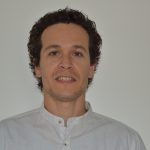Holistic production systems
Leader: Alexandros Theodoridis (AUTH)
Work package 4 will find the best way to manage sheep and goat farms in Europe so they are resilient and more adaptive to the challenges identified in WPs 1, 2 and 3. We will work in parallel with WP5 so that the farm is managed to make best use of improved breeding of sheep and goats.
WP4’s objectives are:
- Find the best way to manage farms using innovative solutions for the ecological and social challenges identified in WP1, WP2 and WP3.
- Work with farmers on selected case study farms to test current and new innovations to understand actual farm level impacts.
- Compare and benchmark the performance of case study farms using the sustainability assessment indicators from WP1. This benchmarking will differentiate and explain by region the varying levels of farm productivity and ecological soundness of the sheep and goat production systems (extensive, semi-extensive, intensive) in Europe.
- Develop management tools for farmer application of new innovations on sheep and goat farms throughout Europe and Turkey.
WP4 Tasks are:

David Yáñez-Ruiz
Task 4.1: Find current and future challenges and potential innovations
(Leader: David YÁÑEZ-RUIZ, CSIC)
We will review innovations that are currently available for farmers to improve the management of their farms. During the project we will also work with WPs 1, 2 and 3 to understand future challenges for sheep and goat farms will possible face. We will also identify new innovations that can potentially be tested on farms from WP 1, 2, and 5.

Daniel Martin-Collado
Task 4.2: Testing selected innovative strategies on case study farms
(Leader: Daniel MARTIN-COLLADO, ASSAF.E)
To improve farmer interaction and engagement with the research community, farmers and researchers will work together to record actual/real data to help develop our models. We will test new innovations found in Task 4.1 on sheep and goat farms in Europe and Turkey. Working with farmers, we will see how new innovations potentially improve the productivity, profitability and ecology of the farms. We will also find out which innovations farmers preferred to use and any problems they had in using innovations on their farms.

Agustin del Prado
Task 4.3: Redesign of farms to switch towards more sustainable sheep and goat production using modeling
(Leader: Agustin DEL PRADO, BC3)
We will make computer models of farms that can represent the diversity of farms across Europe and Turkey. These models will complement the testing of innovations on farms to delve deeper into how changing management affects profit and the environment. For example, we can see how changing the type of sheep or goat from WP5 will change the amount of nitrogen produced on the farm.
This modeling will also test how innovations can make farms resilient to challenges identified in WPs 1, 2 and 3. For example: what can farmers do if the climate changes and the amount of pasture available decreases or becomes more expensive? This modeling is an important process of iSAGE as it can bring together all the results from other work packages to see their effects on the farm.
Task 4.4: Produce user- friendly tools that can be provided to industry (Leader: Gus ROSE, AUTH)
We will make tools that farmers and other people from sheep and goat sectors can use to make farms more sustainable. These tools will use the information from the case study farms and modeling to make tools that are easy to use and provide information relevant to the different types of farms across Europe and Turkey.




 This project has received funding from the European Union's Horizon 2020 research and innovation programme under grant agreement No 679302.
This project has received funding from the European Union's Horizon 2020 research and innovation programme under grant agreement No 679302.
Comments are closed, but trackbacks and pingbacks are open.